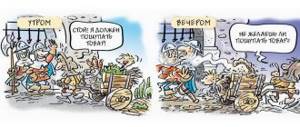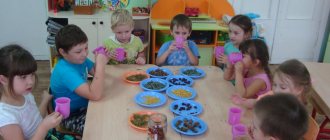Content
- For parents
- For those who want to work as a social educator. What is the essence of the work?
- Features of work
- Working conditions
- Education Requirements
- Salary
- Leading professional values of a social teacher
- Principles of professional activity of a social teacher
So who is a social educator? Why is it needed at school? What functions does it perform? And how to get a job as a “social educator”? You will find all the answers in this article. So, let's go!
A social teacher of an educational institution is a professional teacher, researcher, public figure, whose activities are based on the provisions of the UN Charter of Human Rights, the UN Convention on the Rights of the Child, the Constitution, other laws of the Russian Federation and regulatory documents.
What is the job of a social educator?
A social teacher is a unique and complex profession in its own way. On the one hand, the specialist must be a bit of a psychologist. Because he needs to be able to find an approach to “problem” children from disadvantaged families. Also to schoolchildren who have experienced psychological trauma or are simply behind in their studies and behave like hooligans. On the other hand, a social educator needs knowledge regarding the upbringing of such children in order to advise parents, teachers, and classmates on communication issues.
A social educator monitors problem children or families where the child’s rights may be violated in some way. For example, a student has good behavior and academic performance, but his parents do not fulfill their duties in good faith. In this case, the teacher’s task is to notice a vulnerable child and contact the guardianship authorities. On his initiative, legal proceedings may even be initiated to deprive him of parental rights.
A social teacher can also work with disabled children. He provides psychological support to families, informs about possible benefits for a disabled child, organizes entertainment events, prepares gifts, and so on. The responsibility of this employee is to provide social and pedagogical support to families who have adopted children or have received guardianship. Many specialists work with orphans in orphanages. Therefore, it is clear that the main goal of the teacher is to help lost, neglected or vulnerable children, so that they can feel normal among children from ordinary families and do not get involved with bad company.
Social educators are needed in kindergartens, schools, and educational institutions at various levels. Their main place of work is social protection organizations and children's boarding schools.
For parents
It is no secret that different categories of families study in schools, different children and the parents of these children are also different. In classrooms, conflicts, quarrels, fights, and showdowns between children and parents often occur. Previously, all such issues were dealt with by the class teacher, and sometimes the head teachers or even the director were involved. Now the system has changed a little, although it has retained the main points.
A social teacher is a person who performs the function of a class teacher for the entire school, but the bias is towards analyzing violations of the school’s Charter or offenses. As a rule, a social teacher works with certain “at-risk” children and their parents, but also deals with fairly serious isolated cases.
There are several main cases when a social teacher begins to work with a family and a child:
- Systematic absenteeism and tardiness;
- Underachievement;
- Systematic violations of discipline during lessons and breaks;
- Committing an offense and being called to the KDN (commission on juvenile affairs);
- Causing bodily harm, fighting, causing harm to the health of other children;
- Drinking alcohol, drugs, smoking (including vapes and chewing tobacco);
- Parental neglect or child abuse;
- Conflicts between children, etc.
Any of these violations means that a social teacher is involved in the analysis of the situation by the class teacher, who will talk with both children and parents. He maintains certain documentation recording the students’ misdeeds and the work done on each case. So, for example, when talking with parents, a social teacher fills out the corresponding document, which requires the signature of everyone present at the conversation, and also has a protocol for talking with children.
If you are invited to school by a social teacher, do not worry too much and come to school with a lawyer. This is a regular conversation during which you will be informed about what happened personally, they will describe the consequences and responsibility for the offense, they will talk about further ways to resolve this issue, and they will give you recommendations. You can refuse to follow the recommendations, but you must understand that you yourself will be responsible for all the consequences of your decision and the actions of your child.
If conversations with parents and the child do not lead to anything, the social teacher organizes a Prevention Council, to which parents and students who have committed one or another offense are invited. This Council is attended by the entire school administration, which discusses further actions with the student. As a result of the conversation, the student may be placed under internal school control (ISC).
If a child is assigned to a high school school, a social teacher, a class teacher, a teacher-psychologist, head teachers, and specialists from other organizations are working with him, but there is no positive dynamics, and the child continues to commit misdeeds and offenses, then the school (represented by the social teacher) can write appropriate letters with a request for help and assistance in resolving the issue to the police, KDN, guardianship authorities and other organizations, reporting the current situation. Then there is a high probability of registering the child with the police, registering the family with various organizations, etc. (depends on the situation).
For those who want to work as a social educator
Where can a psychologist without experience go to work? To school as a social educator!
Psychologists are often offered work as social educators, but this is still not quite what is needed. We can say that the meaning of the work of a psychologist and a social teacher is almost opposite. Even if you give the crudest example, everything will immediately become clear.
The psychologist looks for reasons to resolve the conflict and understand what is happening to the child. The social teacher explains what responsibility the child will have if he has committed something, and in some cases he implements this responsibility (for example, placement in the High School). But it is possible to find psychological aspects in the work, because not everyone is given the ability to find the right levers for parents, to correctly explain the situation to them, or to find the reason for the child’s behavior, to give him the right recommendations.
So, if you have absolutely no experience, working as a social educator will help you rethink and understand a lot. You will work closely with the school psychologist, frequently communicate with parents, and look for ways to contact children. In any case, this will be useful to you as a psychologist.
What is the essence of the work
Roughly speaking, you will have to wag your finger at everyone and say what awaits them now. Although a social teacher (in theory) should communicate a lot with children, find out how they are doing in their family, with their studies, with friends, in reality everything happens differently. The emphasis is on working with documents and talking with children about the offenses they have committed.
You'll have to:
- cooperate with government organizations: guardianship authorities, police, prosecutor's office, KDN, various social and psychological centers;
- organize preventive classes (independent lectures and classes or inviting other specialists);
- organize a Prevention Council and implement plans for individual preventive work with children at the High School;
- participate in parent meetings and various meetings/associations;
- consult parents, children, teachers. compound;
- receive complaints from parents, children, teachers. composition and “conduct an investigation” into this issue;
- draw up a lot of documentation for classes (i.e., ask class teachers for various information and it is not a fact that they will bring it to you) and respond to requests from other organizations and much more.
Features of work
In fact, 18 hours of working time should be aimed at studying documentation, laws and regulations, of which there are a lot, filling out papers and reports, of which there are also quite a few, i.e. for methodological work. And the remaining 18 hours are spent working with children. But in real life everything turns out differently.
The workload of a social teacher is simply crazy; very often he even does the work of other employees, especially often the work of class teachers. At the same time, there is a catastrophic lack of time, you have to regularly rework, of course, no one will pay you for this.
Therefore, everything that social media manages to do. teacher, this means analyzing daily “flights” with children and calling parents on each such occasion, filling out (almost daily) papers and reports, organizing preventive lectures and classes. And for everything else there is not enough time at all.
This is a difficult and somewhat thankless job. You immediately find yourself in the epicenter of negativity and aggression. They will not come to you with good news, but will come to complain, be rude, reproach, and declare the perfection of their child (even if this child starts a fight). It is very difficult to find a common language with many parents, because each of them is convinced that it is the school that should educate their child, that it is the school that is to blame for what is happening. It’s especially difficult now, when the school has been deprived of almost all rights. But this, of course, is my subjective opinion.
There are no quality assessments or indicators in this work (e.g. teacher performance). All your preventive work with students cannot be assessed; you can only talk, and the person decides for himself what to do. If you didn’t do anything bad - the child did well, if you did something bad - the school is to blame (including you). And believe me, any organization or any inspection will tell you about this or make it clear in another way. In every case, from summer injury to suicide, only the school will be to blame, and you will have to deal with it all.
But don't be afraid. You might like this work. I know social educators who are passionate about this, help children in difficult situations, and help parents in matters of education. Whatever one may say, working with children brings joy and satisfaction.
Working conditions
The social teacher works in a separate office, and most often his office is located at some distance from the school administration. This is due to some features of the work.
Social The teacher works 36 hours a week, has a standardized working day, the duration of which is discussed with the school director. For example, you can make a schedule in such a way that there will be 4 working days of 8 hours and 1 working day will be shortened. The schedules must reflect visiting hours for parents, usually 1 hour once a week. But everyone needs to understand that parents are received almost every day at any time.
It is worth noting that the profession of a social teacher at school does not have a career development scheme; it formally belongs to the school administration. As a rule, you will “sit” in this place unless you want to radically change your job. But there is a pleasant bonus in the form of almost two months of vacation.
Education Requirements
A social worker must have an official document confirming that he can teach at school. Most often, it is teachers who are hired for this position who receive an additional “certificate” of education in order to be able to work in this direction. But other options are also possible.
For example, you are a certified psychologist. In order to get a job as a social teacher, you must undergo retraining for the specialty “Social teacher”, i.e. take courses after which you will have a document. You will also be required to provide proof of teacher education if this is not indicated in your diploma, i.e. you will need to take more courses.
Salary
A social educator is first and foremost a teacher, i.e. has a pedagogical education (has the right to teach at school, and not at universities). Therefore, very often a person holding the position of “social educator” also works in a school in another position, for example, as a teacher.
This is due, at a minimum, to the fact that the salary of a social teacher, to put it mildly, leaves much to be desired. If you are a young specialist and go to work in this field (without work experience), your salary will be about 15-17 thousand rubles. The salary of a social teacher may increase, this is due to education (whether there is a master’s degree), work experience in this field, and qualifications. Some institutions allow you to take on additional workload, for example, extracurricular activities. Under certain conditions, young specialists may be paid benefits (RUB 1,000-3,500) for several years.
Leading professional values of a social teacher
- Human life and the harmony of his relations with the environment;
- Conscience, honor, dignity of a child and an adult;
- Tolerance and social justice;
- Creativity and social initiative;
- Professionalism, education and general culture;
- High efficiency and responsibility;
- Active personal position and organization;
- Competence and ability for self-improvement.
Principles of professional activity of a social teacher
- Priority of the interests of the child at all levels of social policy;
- The welfare of the child is the main criterion when making decisions;
- Belief in vitality and possibilities;
- Confidentiality in relations with the child and his family;
- Response to a request for help, regardless of lifestyle, nationality, age and health of the child, social and economic status of the family;
- Caring as complicity - sympathy, consciousness and assistance to the child in his independent solution of a life problem;
- Promoting the development of humane and democratic relations between subjects of social life and the educational process;
- Sharing responsibility for the decision made with society, the state and specific people;
- The boundaries of competence are determined on the basis of the job description, taking into account real conditions;
- Consciousness of a noble mission does not allow the social teacher to commit acts that compromise the profession;
- Providing social support to persons who accept a child in accordance with personal and professional capabilities, qualifications and education;
- Respect and trust in colleagues and social partners, as a means of facilitating an optimal solution to a problem in the life situation of a child and his family;
- Continuous self-determination, self-education, self-improvement, striving for a positive result.
The work of a social teacher with parents, presentation for a lesson on the topic
Slide 1
Work of a social teacher with parents of gifted, difficult, educationally neglected children, as well as with parents of a disabled child. Prepared by Social teacher GBOU SPO MOTOT Salkovskaya O.Yu.
Slide 2
The purpose of interaction between a specialist and parents: Interaction between an educational institution and a family involves the establishment of an interested dialogue and cooperation, developing into active assistance aimed at ensuring the main function of the educational system - the development, integrity of the child’s personality, as well as his adaptation and comfort.
Slide 3
The work of a social teacher With parents of gifted children With parents of difficult children With parents of a disabled child With parents of a pedagogically neglected child
Slide 4
Gifted child A gifted child is a child who stands out for his bright, obvious, sometimes outstanding achievements (or has internal prerequisites for such achievements) in one or another type of activity.”
Slide 5
Work with parents of a gifted child is carried out in the following areas: (based on the work of teacher E.A. Romanovskaya): 1. psychological support for the family of a gifted child; 2. information environment for parents; 3. joint practical activities of a capable child and his parents; 4. support and encouragement of parents at the level of the educational institution.
Slide 6
Psychological support for the family of a gifted child: Work with a psychologist: expanding the possibilities of understanding a gifted child; improving reflection on your relationship with a gifted child; developing new skills for interacting with a child; establishing and developing relations of cooperation and partnership between parents and children. (tests, trainings, etc.)
Slide 7
Information environment: a series of parent meetings, round tables, conferences, workshops, creative collections (tests, questionnaires, different situations for discussion).
Slide 8
Joint practical activities of a capable child and his parents: Joint research activities: photo report, observation, sketches, joint excursions, presentations
Slide 9
Support and encouragement of parents at the school level: Concerts for parents Letters of gratitude Certificates One of the performance criteria is the satisfaction of students, parents, and teachers with the life activities of gifted children in an educational institution!
Slide 10
Problem child A problem child is a child whose behavior deviates from the standards and norms accepted in society.
Slide 11
Types of “difficult” families: 1. A family with “difficult” parents. This is often a single mother whose child interferes with her personal life. The atmosphere in such a family is characterized by coldness, indifference, and lack of spiritual conflict.
Slide 12
2. A family where neglect prevails. In families of this type, parents tend to drink alcohol. Fathers and mothers are characterized by cultural limitations, poverty of feelings, and lack of spiritual connections with their children.
Slide 13
3. Families characterized by pedagogical illiteracy of parents. In such a family, parents do not understand their children, display complete ignorance of methods of influence, underestimate the importance of family education, and undermine the authority of educational institutions and teachers.
Slide 14
4. Families that prioritize material well-being over spiritual life. In such families, children, as a rule, grow up to be selfish and overly practical consumers. And parents encourage these qualities in their children.
Slide 15
5. Families in which parents make excessive demands on their children, bordering on cruelty. In such families, children are punished, often physically, for the slightest offense. And, as a result, children grow up cruel and embittered.
Slide 16
Work with parents of a difficult child is carried out in the following areas: Diagnosis of family problems. Educational work on issues of education, psychological characteristics of children, civil rights. O assistance in obtaining social assistance. Analysis of work results.
Slide 17
Diagnosis of family problems Socio-medical Socio-pedagogical Socio-psychological Socio-economic Socio-legal: physical disabilities, pathologies of the parents themselves; child overprotection; lack of basic pedagogical and psychological knowledge; low financial level of the family; ignorance of their rights and responsibilities as parents; physical disabilities, pathologies of the child; the child is allowed almost everything, lack of control on the part of the parents; conflicts in the family. poor living conditions; legal incompetence mental disorders of one of the parents; discrepancy, inconsistency in parenting methods between parents; low subject availability of mental illnesses of the child; language barrier (bilingualism). alcoholism, drug addiction, etc. ;
Slide 18
Educational work on issues of upbringing, psychological characteristics of children, civil rights Promotion of a healthy lifestyle Conducting individual preventive conversations with parents Organizing meetings of teachers and technical school specialists with parents Invitation to meetings of the Prevention Council Parent meetings Consultations on employment issues outside of school hours Inspection of the living conditions of minors
Slide 19
About assistance in obtaining social assistance: Joint work with social authorities. protection: Benefits Patronage Compensation Health improvement and treatment Rehabilitation Social. card Help in difficult life situations Pensions, etc.
Slide 20
Analysis of work results. An indicator of the success of working with parents of difficult teenagers will be the ability of the class teacher to make the parents of their students allies of pedagogical intentions.
Slide 21
A disabled child A disabled child is a child with congenital disorders of various sensory organs, with physical disabilities or a mentally retarded child.
Slide 22
Work with the parents of a disabled child is carried out in the following areas: the formation of an adequate perception by parents of their child: it is important to move away from the concept of “disease” and move on to the concept of “special laws of development”; creating a favorable microclimate in the family to maximize the development of the child’s personal resources; the formation of partnerships between parents and institutions that realize the interconnection and complementarity of knowledge, enrichment of experience; personal and social development of parents, formation of skills of social activity and constructive behavior.
Slide 23
Forms of work: individual consultations on child development issues; organization of outdoor events: visits to theaters, museums, exhibitions, trips out of town, etc.; educational seminars; psychological trainings; public events; press clubs and thematic round tables; publishing the experience of raising a child in a family; meetings with government officials; classes in the “child – parent – specialist” system; participation in the examination of the dynamics of child development.
Slide 24
OR (if personal contact is not possible): 1. Notice boards: – notices of meetings; – announcements about upcoming events; – information about the activities in the group: what topic is currently being discussed in the group, what the children are doing in the group; – children’s statements throughout the day; – daily schedules; - gratitude to parents. The information on the stand can be duplicated or develop the information appearing in notes or conversations. 2. Brochures: – help parents become familiar with the disease and other topics. They may contain various information. 3. Newsletters: can be sent once or twice a month, (purposes may vary): – information about various special events: meetings, evenings, excursions, performances, etc.; – description of events taking place in the boarding school; – a description of the types of activities conducted in the group, as well as measures to support these activities at home; – presentation of ideas to better present the topic that is being discussed in the group (“Autumn”, “My Family”, “Pets”, etc.).
Slide 25
4. Individual pockets: (once a week). Notes about the child's latest achievements, successes and new acquisitions are placed in the pockets. 5. Personal photo albums, albums, diaries that are passed from teacher to parent and back: – short messages about the child’s achievements; – notification of special events; – gratitude to parents; – child’s health; – personal growth. This method is especially suitable for parents who easily express their thoughts in writing. For those who are not used to using such equipment, other options are suitable. 6. Closed boxes (in the form of a mailbox) for proposals. Anonymous notes where a parent can express his attitude towards the group, ideas for design, advice, suggestions, etc.
Slide 26
From the experience of MBOU Secondary School No. 9 in Birsk. The main problems of families with children with developmental disabilities: financial situation, problems of training and rehabilitation of the child through education. receiving full medical care and social services.
Slide 27
The work of a social teacher with families raising a disabled child (From the experience of MBOU Secondary School No. 9 in Birsk). The goal of social and pedagogical activities is the implementation of a comprehensive support program. Stage - diagnostic (Family diagnostics: material and living conditions, size and structure of the family, emotional and psychological climate and the nature of the relationships between its members, life experience and cultural and educational level, distribution of responsibilities and availability of free time, nature of the organization of joint activities, communication style , level of pedagogical competence of adult family members, family traditions.) Stage - organizational (training parents in specific ways and techniques of working with a child on the basis of an individual program; enhancing the participation of one of the family members as an organizer of rehabilitation; selection of didactic material for special classes, production of visual aids , adaptations; development of organizational forms of work, learning conditions; establishing a style of family communication.) 3. Stage - assessing the effectiveness of the work done. (stability of the psycho-emotional state of the child and parents; level of formation of joint activities; level of development of communication skills).
Slide 28
Program of psychological and pedagogical work with families raising disabled children Working with parents using active social and pedagogical teaching methods Working with children and parents using play activities.
Slide 29
Working with parents using methods of active social and pedagogical learning (From the experience of MBOU Secondary School No. 9 in Birsk). Goals: teaching parents how to get out of stressful situations; reducing anxiety and fear of rejection; correction of personality disorders and attitudes. strengthening intra-family ties, forming harmonious relationships; gaining self-confidence; consolidation of a harmonious family image;
Slide 30
Working with children and parents using play activities (From the experience of MBOU Secondary School No. 9 in Birsk). Goals: group interaction, acquaintance, development of coordination, sense of touch and smell. strengthening intra-family ties, forming harmonious relationships; gaining self-confidence; development of fine motor skills, body contact, increased self-esteem.
Slide 31
Pedagogically neglected child Pedagogically neglected child is a stable deviation from the norm in the child’s behavior, moral consciousness, educational activities, manifested in the child’s underdevelopment, lack of education and bad manners, the lag of his development from his own capabilities, due to the negative influence of the environment and errors in upbringing, frequent changes of schools and teachers, the negative influence of the street, neglect
Slide 32
Forms of pedagogical neglect (E.S. Zasedateleva): I Form - unformed elements and skills of educational activities. Reason: individual characteristics of intellectual development. Consequence: poor academic performance. Form II—lack of formation of learning motivation; focus on other non-school (inappropriate for age) activities Reason: infantilism of education; overprotection; unfavorable factors that destroyed positive motivation (interpersonal relationships, inadequate assessment of educational activities). Consequence: poor academic performance and behavior against the background of a sufficient level of cognitive capabilities. III form - inability to voluntarily regulate attention and educational activities. Reason: peculiarities of family upbringing (indulging or dominant hyperprotection), the same type of upbringing in kindergarten and elementary school. Investigation; disorganization, inattentiveness, dependence, listlessness, communication disorders, poor academic performance.
Slide 33
Classification by V.G. Bazhenov 1st group 2nd group 3rd group Schoolchildren whose degree of pedagogical neglect is insignificant. They have negative traits and unstable qualities. They remain interested in school and have a generally positive attitude towards learning. There are no conflicts with teachers and peers. Children of this group are characterized by easy suggestibility, instability, and lack of self-confidence. They are characterized by such qualities as laziness, inability to resist their negative situational desires, absent-mindedness, disorganization, lack of initiative, and lack of independence. The position of such children in the team can be favorable; they, as a rule, do not find themselves in isolation. Characterized by low academic performance, conflictual relationships with peers and teachers. Such children, as a rule, come from disadvantaged families. They are distinguished by ostentatious rudeness. Their cognitive interests are not sufficiently developed; in the elementary grades they do not master educational activities. These children's interests are mainly focused on extracurricular activities. They are easily suggestible, and their lack of moral convictions makes them easily susceptible to negative influence. The emotional-volitional sphere is characterized by a lack of self-control, inability to control oneself, hot temper, embitterment, and hostility. However, conflicts with peers are not protracted, and conflicts with teachers arise due to failure in educational activities. Characterizes a negative attitude towards moral and legal norms. They are openly rude to parents, teachers and classmates. The family situation is usually unfavorable. Such children are characterized by very poor academic performance. They compensate for their isolation in the classroom by interacting with their own kind. They are distinguished by lack of will, a tendency to showy outbursts, poor development of inhibition processes, and the like.
Slide 34
Work with parents of a pedagogically neglected child is carried out in the following areas: Development of schemes for organizing contacts with children and parents. Consulting. Work with a psychologist (required) A.K. Lukina
Slide 35
Thank you for your attention!







